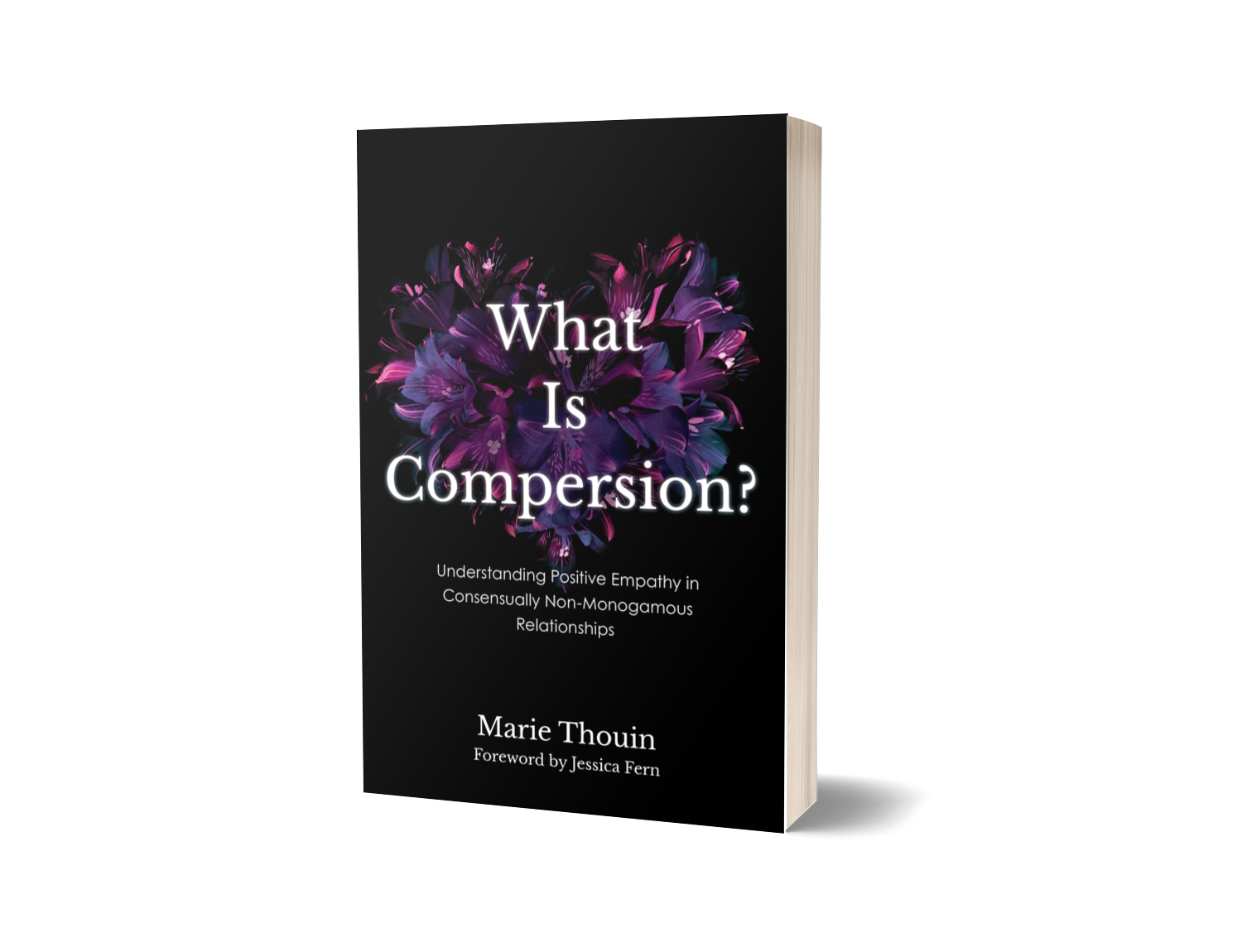
COMPERSION
A Radical Love Phenomenon
What is compersion? Is it the “opposite” of jealousy, as it is usually believed? Is it an emotion or a behavior? What causes it to arise and bloom? Can we “learn” compersion, or at least invite more of it into our lives?
The first ever comprehensive book on compersion is now available!
What is compersion?
Compersion is our wholehearted participation in the happiness of others. It is the sympathetic joy we feel for somebody else, even when their positive experience does not involve or benefit us directly. Thus, compersion can be thought of as the opposite of jealousy and possessiveness.
Why is it radical?
Compersion depends on viewing other people as intrinsically autonomous and self-determined—and celebrating their own unique path to fulfillment. This might not seem radical when we feel happy for a friend getting a promotion at work, a family member reaching a fitness goal, or a child delighting in learning how to walk. But what if our romantic partner were to experience happiness and growth from an intimate relationship with somebody else? Could we possibly rejoice with them?
When compersion happens in a situation where jealousy is the more common or conditioned response, we are, in a sense, entering the radical, outer reaches of love. Therefore, people who experience compersion in those unexpected places can be considered pioneers of a significant human potential. This is why I decided to conduct research on this phenomenon—so I could learn about this unconventional yet powerful expression of human love.
Why does it matter?
Learning about compersion can benefit people in all types of relationships. Whether one is in a consensually non-monogamous relationship (a designation that includes polyamory, open relationships, swinging, relationship anarchy, and others) or not, compersion conveys to another person that we genuinely support them on their chosen path to wellbeing. This encourages authentic emotional expression, which in turn reinforces a sense of togetherness and being on the same team. Generosity begets generosity, and love begets love—creating a positive emotional feedback loop. Thus, compersion is fundamentally an expression of deep friendship and support, and it can be cultivated as a way to strengthen any connection. (Check out my latest blog to read more on this)
How did the word come about?
The term compersion was coined and defined in the early 1990s by the Kerista community, a San Francisco-based polyamorous group that has since disbanded, as the feeling of taking joy in the joy that others you love share among themselves. In the context of consensually non-monogamous romantic and sexual relationships, compersion refers to the empathetic feeling of joy one experiences when their partner takes pleasure from another relationship.
Although polyamorists were the first to coin this term in the English language, the concept had existed long before.
Buddhists had long considered sympathetic joy (referred to as mudita in Sanskrit) to be one of the four qualities of the enlightened person—the other three being loving kindness (metta), compassion (karuna), and equanimity (upeksha). According to this tradition, mudita remedies the illusory separateness between self and others and can therefore be a powerful vehicle on the path to liberation. You can learn more about the connection between compersion and mudita in this article.
How does one cultivate compersion?
My research has revealed the specific factors that promote and hinder compersion for consensually non-monogamous individuals. This dissertation is the most comprehensive piece of writing published to date on the topic of compersion, as it contains a thorough background of the literature, interview transcripts of real people’s compersion stories, and a practical map to understanding what invites vs. blocks compersion in intimate relationships.
Please download my full dissertation here, and check out my blog as well as a compiled list of resources and media appearances.
Should you want personal support around developing more compersion into your relationships, please learn about my coaching services & book a free 30-min exploratory session below.
I am sending you warm wishes & look forward to meeting you!
Your compersion worksheet!
If you want to invite more compersion into your relationships, this worksheet is the best possible tool to help you understand HOW.
This comprehensive 27-page document is the first and only of its kind. It was lovingly created by Dr. Marie Thouin based on her original research with consensually non-monogamous people.
This worksheet is designed to help you identify exactly where you can best invest your energy to create more joy, connection, and compersion in your relationships - exploring 6 broad categories of factors, and 48 sub-categories.
Use this worksheet by yourself or with your partner(s)! It is guaranteed to lead to rich conversations and discoveries.
Upon this $27 purchase, you will immediately receive a link to download your easy-to-print PDF for you to keep and use forever!



